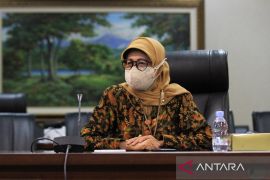Obama spoke by telephone with his close ally as Washington and its regional partners swiftly closed ranks after the death of the Stalinist state's volatile leader. Kim Jong-il since a long time ago prepared his ancestor who is his youngest son Kim Jong-un.
"The president underscored the United States' commitment to the defense of our close allies, including Japan," the White House said in a statement.
"He also conveyed the importance he places on maintaining the stability of the Korean Peninsula and the region."
It said the two leaders "agreed that the United States and Japan would monitor events carefully and stay in close touch."
Obama earlier called his close friend President Lee Myung-Bak of South Korea.
Kim's death came as North Korea and the United States were making tentative efforts to restart stalled six-nation talks on the North`s nuclear program.
Nuclear envoys from Washington and Pyongyang met in New York in July and in Geneva in October, but reported no breakthrough. South Korea's Yonhap news agency said that a third meeting could have taken place soon.
Obama warned North Korea in October that it would face deeper isolation and international pressure if it carried out more "provocations" like those that rattled Asia last year.
But he also said Pyongyang could expect greater opportunities if it lived up to its international obligations over its nuclear program.
The North quit the six-party forum, which involves the United States, China, the two Koreas, Japan and Russia, in April 2009, a month before staging its second nuclear test.
Pyongyang wants the forum to resume without preconditions and says its uranium enrichment program -- first disclosed to visiting US experts one year ago -- can be discussed at the talks.
North Korea, which has never signed a peace treaty with the United States following the 1950-53 Korean war, has been a frequent foreign policy headache for successive US administrations.
Pyongyang has sought to rest concessions from Washington, and repeatedly reneged on agreements, like the 1994 Agreed Framework, designed to limit the development of its bristling nuclear threat. (H-RN)
Editor: Ade P Marboen
Copyright © ANTARA 2011




